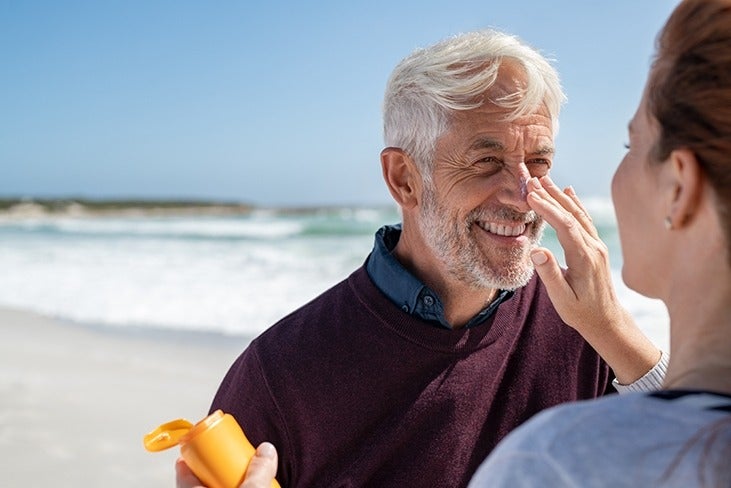Hot Weather Safety: Heat Exhaustion and Heat Stroke

Summertime is the season many people look forward to all year. But it isn’t without hazards. While the warm weather makes it easier to enjoy outdoor activities, the heat can also cause serious health concerns.
Heat related stress can occur if you are exposed to high temperatures for too long such as during heat waves or high humidity weather. Older adults are more vulnerable to heat stress. Dealing with chronic conditions, taking multiple prescription drug medications, and being less able to adjust to sudden temperature changes all contribute to an increased risk of experiencing heat related stress.
What is heat stroke?
Heat stroke causes the body’s temperature to rise rapidly to 103 degrees or higher within 10 to 15 minutes and is unable to cool down due to the inability to sweat. Those most at risk for heat stroke include older adults who live in homes or apartments without air conditioning, become dehydrated, have chronic conditions, or suffer from alcoholism.
Heat stroke is the most serious heat-related illness and is a medical emergency. If you have heat stroke, or if you see someone experiencing signs get medical help right away.
Signs of heat stroke include:
- Fainting
- Becoming confused, agitated, acting strangely or staggering
- Body temperature over 104 degrees
- Rapid pulse or slow, weak pulse
- Not sweating even if it is hot
What is heat exhaustion?
Heat exhaustion is a milder heat-related illness. But shouldn’t be taken lightly. If not treated, heat exhaustion can progress to heat stroke. Heat exhaustion can develop after several days of exposure to high temperatures without hydrating properly.
Signs of heat exhaustion include:
- Heavy sweating
- Paleness
- Muscle cramps
- Tiredness
- Weakness
- Dizziness
- Headache
- Nausea or vomiting
- Fainting
- Skin may be cool and moist
- Rapid heartbeat
- Breathing: fast and shallow
How to protect yourself
Make sure you stay hydrated by drinking cool, nonalcoholic beverages. If your doctor requested you limit your liquid intake or has you on water pills, ask your doctor how much you should drink when the weather is hot. Try to avoid extremely cold liquids as they can cause cramps. In addition, follow these prevention tips to protect yourself:
- Take it easy in warm weather, rest during the day, and don’t engage in strenuous activities
- Take a cool shower
- If you don’t have air conditioning, seek an air-conditioned environment to cool off such as a shopping mall, public library or senior center
- Wear lightweight clothing
- If possible, remain indoors in the heat of the day
What to do for someone with heat stress
If you see someone experiencing signs of severe heat stress, it may be a life-threatening emergency. Call for immediate medical assistance while you begin cooling the affected person:
- Get the person to a shady area.
- Cool the person rapidly, using whatever methods you can. For example, immerse the person in a tub of cool water; place the person in a cool shower; spray the person with cool water from a garden hose; or sponge the person with cool water.
- Monitor body temperature and continue cooling efforts until the body temperature drops to 101°–102°F
- Get medical assistance as soon as possible.
Resources & Tools
Drug Search
Use the drug search tools to find out if your drugs are covered and which tier they fall under on your plan type.
Find a Doctor
Find a doctor within your Tufts Health Plan Medicare Preferred HMO network or your Tufts Health Plan Senior Care Options network.
Health Library A-Z
Tufts Health Plan has partnered with Healthwise to provide members with access to a library of high-quality content on conditions, treatments and more.